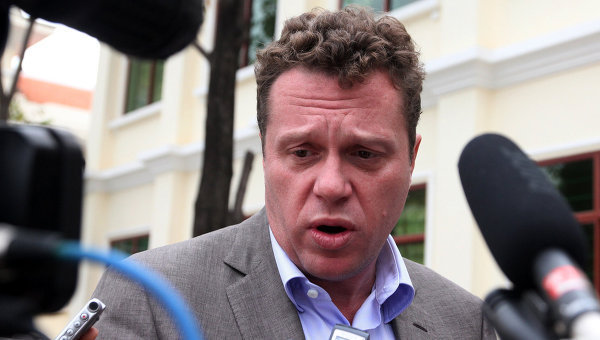MOSCOW, April 22 (RAPSI, Maria Zueva) - Fugitive real estate tycoon Sergei Polonsky, who currently resides in Cambodia, will give official testimony before lie detector in the cases involving the embezzlement of billions of rubles from the participants in two Russian residential construction projects, attorney Alexander Karabanov told RIA Novosti on Tuesday.
Polonsky spent three months in jail in Cambodia last year on kidnapping charges. The Cambodian police arrested Polonsky, Konstantin Baglay and Alexander Karachinsky on December 31 2012, on charges of having inflicted harm on the crew of a ship heading back to Sihanoukville from nearby islands and of having deprived them of their personal liberty. Prosecutors maintain that, while in a state of intoxication, the men threatened the crew with knives, locked them in a hold, and then forced them to jump overboard. Later, the mogul and his friends were released.
After receiving bail he fled to Israel, where he sought citizenship, supposedly in a bid to shield himself from extradition to Russia.
Polonsky was then again detained in Cambodia by the local police in November 2013 at the request of the Russian Prosecutor General's Office, which seeks the businessman's extradition. Polonsky was charged in absentia last July as part of a criminal case involving the embezzlement of over 5.7 billion rubles (over $159 million) from the participants in an up-market cooperative residential construction project Kutuzovskaya Milya in central Moscow.
In March, Polonsky has been officially charged with embezzling over 150 million rubles ($4.2 million) from the Rublyovskaya Riviera residential construction project's participants. The investigators believe that Polonsky in 2008 stole the money from future property owners who have invested in the construction project in Moscow via the Mirax Build, a subsidiary of the Mirax Group.
In 2008, Forbes ranked Polonsky Russia's 40th richest man with a $4.35 billion fortune. He headed the Mirax Group, a property development company that went bankrupt during the global economic crisis.



